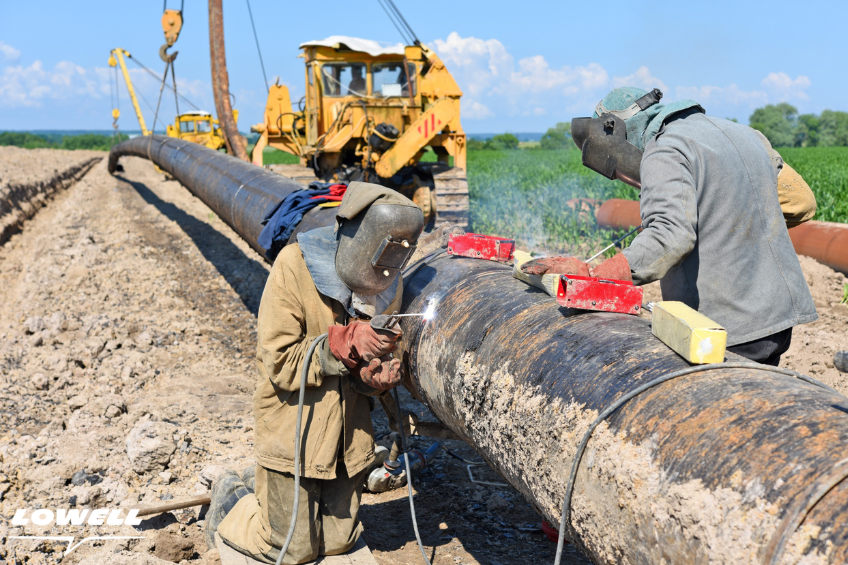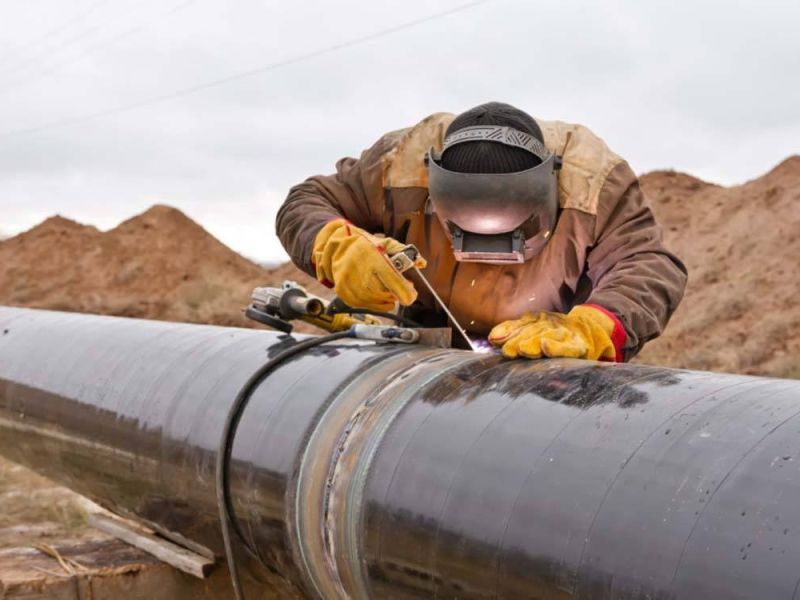A Comprehensive Guide to Comprehending Pipes and Their Function in Construction
Pipes are vital parts in construction, offering crucial functions in waste, water, and gas management. Their choice and application can considerably affect a structure's effectiveness and security. Various materials, such as PVC, copper, and PEX, use distinctive advantages suited to specific demands (Creek Pipe Midland). Recognizing these factors is essential for any building and construction job. As one discovers the complexities of pipelines, the ramifications for conformity and public health become significantly noticeable
The Significance of Pipes in Building
Pipelines function as vital conduits in building and construction, promoting the movement of water, gas, and waste throughout buildings and facilities. Their function extends past simple transportation; they are important for making certain the functionality and safety and security of residential and commercial settings. Properly mounted pipes contribute to the efficient distribution of sources, making it possible for everyday tasks such as showering, food preparation, and heating. Additionally, pipes play a pivotal duty in waste monitoring, ensuring that sewage and wastewater are properly removed from living spaces.The relevance of pipelines is likewise reflected in their influence on public health. Poor or damaged piping systems can cause contamination and hazardous conditions, making quality products and setup practices crucial. In addition, pipelines should follow various building regulations and policies, which are developed to shield both owners and the atmosphere. Subsequently, the relevance of pipelines in building and construction includes both sensible performance and crucial health and wellness considerations.
Types of Water Lines Utilized in Structure Jobs
Various kinds of pipes play a significant role in building tasks, each created to fulfill particular requirements and applications. Amongst one of the most typically utilized pipeline kinds are PVC, which is light-weight and resistant to deterioration, making it suitable for drain and air vent systems. CPVC pipes, comparable to PVC, can hold up against higher temperatures, usually utilized in hot water systems. Copper pipes are understood for their toughness and dependability, regularly used in pipes and home heating applications. Galvanized steel pipelines, while less common today, were when a criterion for water supply lines as a result of their strength. Additionally, PEX (cross-linked polyethylene) pipes are acquiring appeal for household pipes as a result of their adaptability and resistance to scaling and chlorine. Cast iron pipelines are preferred for their sound-dampening residential properties, typically utilized in waste and dirt systems. Each pipe kind serves unique features, ensuring reliable procedure in construction tasks.
Common Products for Pipeline and Their Quality
In building and construction, the option of pipeline materials is critical for guaranteeing toughness and functionality. Metal pipelines offer toughness and resistance to high pressures, while plastic pipelines offer lightweight and corrosion-resistant choices. Compound pipelines combine the benefits of both materials, making them functional alternatives for different applications.
Steel Pipeline Options
Metal pipes are essential elements in building and construction, providing a range of choices that cater to different applications and ecological conditions. The most typical products include steel, copper, and cast iron. Steel pipelines are understood for their stamina and longevity, making them suitable for high-pressure applications. Copper pipelines are preferred for their corrosion resistance and antimicrobial properties, usually utilized in pipes systems. Cast iron pipelines give exceptional noise insulation and are ideal for waste and drainage systems. Each steel type has distinctive benefits; for instance, galvanized steel can stand up to corrosion, while stainless steel offers exceptional deterioration resistance. Picking the appropriate steel pipe depends upon elements such as expense, environmental direct exposure, and the details demands of the building and construction project.

Plastic Pipe Advantages
Plastic pipelines have obtained popularity in building and construction as a result of their light-weight nature and versatility. These pipes, made from materials such as PVC, CPVC, and PE, offer exceptional resistance to deterioration and chemical damages, making them ideal for numerous applications. Their convenience of installment more boosts their charm, as they can be cut and joined without unique devices. In addition, plastic pipelines are typically a lot more cost-efficient contrasted to metal options, contributing to lower overall task costs. Their smooth interior surfaces decrease rubbing and enhance flow rates, while insulation properties assist keep temperature control in plumbing systems - Creek Pipe Midland. With a vast range of arrangements and sizes offered, plastic pipelines efficiently satisfy the diverse needs of modern-day building projects
Composite Pipe Characteristics
Composite pipes incorporate numerous products to leverage their private toughness, causing enhanced performance and sturdiness. Typically, these pipes consist of layers that might consist of ceramics, plastics, and steels, each adding distinct properties. The inner layer may be made of a corrosion-resistant material, while the outer layer gives stamina and influence resistance. This mix allows composite pipes to endure severe temperatures and stress, making them appropriate for a wide variety of applications, including water and industrial processes. In addition, composite pipelines are frequently lighter than standard products, promoting simpler handling and setup. Their adaptability and adaptability to different environments make them a preferred selection in contemporary building and construction tasks, guaranteeing durability and performance in fluid transportation systems.
Applications of Piping in Plumbing Solutions

Electric Avenues: The Duty of Water Lines in Electrical wiring
In modern building and construction, electric channels play an important duty in ensuring the efficient and secure transmitting of electric wiring throughout structures. These pipes supply a protective pathway for electrical cables, safeguarding them from physical damages and ecological variables. Different materials, such as PVC, metal, and adaptable avenues, are utilized relying on the particular demands of the installation.Furthermore, channels aid in arranging electrical wiring systems, reducing the danger of electrical dangers like short circuits or fires. They additionally assist in simpler maintenance and upgrades, as wires can be accessed and changed without significant disruption to the structure.Proper setup of electric channels is essential for compliance with structure codes and security guidelines. This structured method not just enhances the longevity of the electric system yet likewise adds to the overall security and capability of the building, making electrical channels important in modern-day building methods.
Selecting the Right Pipeline for Your Project
Just how can one assure the appropriate pipeline option for a building and construction task? The selection process starts with comprehending the specific demands of the job, including the sort of fluids being transferred, stress scores, and environmental problems. Material choices, such as Copper, pvc, and steel, should be examined based upon toughness, rust resistance, and thermal properties.Next, one need to think about the pipe's size and circulation capability to identify effective operation. Regulatory standards and codes need to likewise be abided by, as they determine the acceptable materials and techniques for specific applications. Consulting with professionals and using extensive resources can additionally assist in making informed decisions.Finally, reviewing the cost-effectiveness of various choices is vital, balancing preliminary costs with long-term maintenance and replacement expenses - Creek Pipe Midland. By meticulously assessing these factors, one can with confidence pick the most appropriate pipeline for their construction project, ensuring both performance and compliance

Upkeep and Evaluation of Piping in Building and construction
Appropriate choice of pipelines sets the structure for their long-term performance, making maintenance and examination crucial components in building. Normal upkeep assurances that any prospective concerns, such as leakages, deterioration, or obstructions, are recognized and addressed immediately, lessening expensive repair services and job delays. Arranged assessments, consisting of visual evaluations and pressure tests, play a crucial duty in evaluating the stability of pipeline systems.Additionally, keeping track of environmental variables, such as temperature variations and soil problems, can aid anticipate deterioration. Making use of advanced modern technologies, such as CCTV for interior assessments, can boost the performance of upkeep efforts. It is vital to record assessment findings and maintenance activities to establish a comprehensive history of the pipeline systems. By focusing on upkeep and assessment, building and construction specialists can prolong the lifespan of their piping systems, guaranteeing they run efficiently and accurately throughout the project's duration.
Often Asked Concerns
Just How Do Pipes Influence Energy Efficiency in Structures?
Pipes greatly affect power effectiveness in structures by controling heating and cooling down systems. Correct insulation and products reduce energy loss, while reliable plumbing styles minimize water usage, ultimately resulting in lower power usage and functional costs.
What Laws Govern Pipe Installment in Building?
Regulations controling pipeline setup in building usually consist of local and national building codes, pipes codes, and safety requirements. These assurance conformity with structural integrity, material specifications, and health needs, advertising safety and security and performance in building methods.
Can Pipes Be Recycled After Usage?
The question of pipe recyclability is considerable. Several products, such as steel and particular plastics, can be recycled effectively. Nonetheless, the condition and sort of pipe influence recycling expediency, requiring proper assessment before disposal.
How Do Climate Conditions Effect Pipe Efficiency?
Weather conditions considerably influence pipe efficiency. Severe temperature levels can create expansion or tightening, while moisture may cause rust. Additionally, hefty precipitation can boost soil pressure, affecting stability and general functionality of the piping system.
What Are the Indicators of Pipe Failing to Watch For?
Indications of pipeline failure include leaks, uncommon sounds, discoloration of water, decreased water pressure, and noticeable deterioration. Regular examinations can help detect these issues early, stopping costly repairs and making sure system performance in the long-term. Pipes play an essential duty in waste monitoring, guaranteeing that sewage and wastewater are effectively gotten rid of from living spaces.The significance of pipes is likewise reflected in their effect on public health and wellness. In building and construction, the selection of pipeline materials is crucial Creek Pipe Pipeline Construction for making certain longevity and functionality. Metal pipes provide strength and resistance to high stress, while plastic pipes offer corrosion-resistant and lightweight alternatives. Furthermore, pipelines are used to eliminate wastewater, linking bathrooms, sinks, and drains pipes to municipal sewer systems or septic tanks.Different kinds of pipes, such as PVC, copper, and PEX, are picked based on elements like longevity, cost, and certain application needs. How can one assure the appropriate pipeline choice for a construction project?
Comments on “How Creek Pipe Midland Applies Data Analytics to Prevent System Failures”